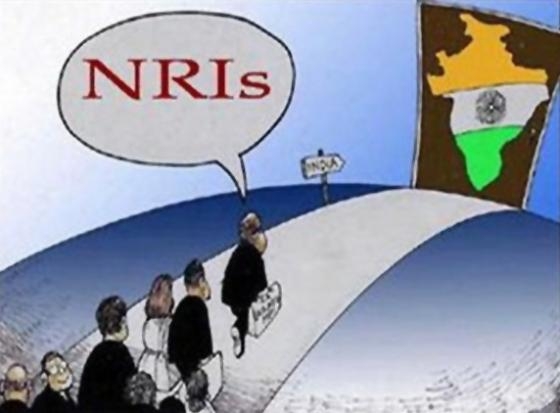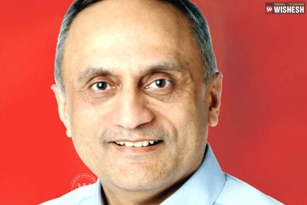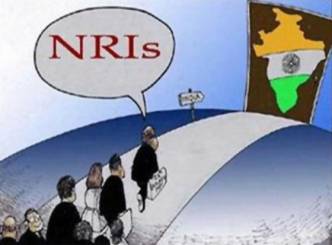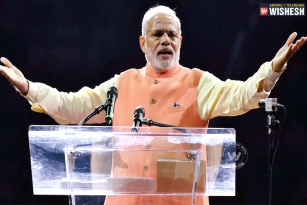
Non-residents Indians (NRIs) will have to spend a little more on their visits to India after the latest budget.
As the air travel tax has gone up, NRIs now pay more when they buy their air tickets to travel back home and within India. Moreover, their stay at luxury hotels, guest houses and meals at good restaurants will cost slightly more as service and other taxes have gone up.
In fact, for medical treatment in India, NRIs will have to pay more because the service tax on healthcare is up. For example, if an NRI undergoes heart surgery, the charges go up between Rs.5,000 and Rs.10,000.
As a reason of increasing the income tax threshold marginally from Rs.160,000 to Rs.180,000 will benefit NRIs paying tax. In fact, Senior NRI taxpayers over 60 and very senior taxpayers over 80 will benefit more. But not in real terms. The inflation rate is higher than the relief. Most western governments have started announcing tax rates at least three years in advance so that people can plan ahead and India needs to follow this system, urges S.K. Gupta, an NRI chartered accountant.
Despite the recent negative news of scams and corruption, NRIs are still interested in buying property, investing in stocks or mutual funds, starting new ventures and even settling in India to retire. Should they take this plunge after this budget? Yes, considering the returns they can reap from their investments.
Suppose an NRI invests Rs.100,000 ($2,216 or 1,603 euros at current rates) in the three options of fixed deposits, equities and mutual funds (MFs). If an NRI puts down a fixed deposit of Rs.100,000 ,the total amount with interest will rise to Rs.113,000 for one year and Rs.174,000 after five years. If an NRI invests Rs.100,000 in equity, after one year the investment will more than double to Rs.226,000 and in five years, it will rise further to Rs.278,000. Now, if an NRI invests Rs.100,000 in MFs, it will go up to Rs.176,000 after one year more than triple to Rs.358,000 after five years with less risk than equities.
The highest returns come from MFs when compared to investing in fixed deposits or in Indian stocks. The initial paperwork for getting a Permanent Account Number (PAN) Card and getting KYC (Know Your Customer) takes a lot of time and effort and the budget has not addressed this problem, but the high returns make it worthwhile.
In a bold budgetary move, the Indian capital markets have been thrown open to foreign investors. This means that an individual foreigner can now invest in equity MFs. The NRIs still have an edge in the lower risk debt funds segment as foreigners cannot invest in the area, said Sanjay Durgan of Abundanze Wealth Management.
By holding the Pravasi Bharatiya Divas conferences in India and abroad with other initiatives, the Indian government has roped in rich NRIs to invest in India. NRIs who are also High Net Individuals (HNIs) continue to park their savings and investments in India because they see long-term stability and economic progress of this country. Middle class NRIs want security and steady returns on their savings and so they are also banking on India, said Vikas Vij, a practising accountant.
NRI's ever keen to buy property in India are disheartened by the sky high real estate prices. But they fear the largely unregulated Indian real estate market. No steps have been taken to license and weed out unscrupulous real estate agents and property developers. Legislation on this problem is in the offing but too many NRIs have been duped. The stamp duty and the procedure for property registration are not uniform all over the country and this poses many problems for NRIs who want to buy property during their short visits. An Indian Stamp Act will be tabled to address this problem. Non-operational limited liability companies in India with NRI partners could not be easily wound up. Now the budget offers an Easy Exit Scheme to wind up these companies.
As the fact remains the total NRI remittances for 2010 were $55 billion which were expected to rise further last year. This year, NRI remittances from the Middle East, especially Libya, will decline but the total amount is expected to remain at this level and may increase marginally. Despite the slowdown following the 2008 financial crisis in the West and the current unrest in North Africa and the Middle East, NRIs still continue to look at India for depositing their savings and making investments, although they did not get any special incentive in this budget. Still, NRIs will send and keep their money in India where their heart is.
Moreover...
India unveiled a surge in government spending on Thursday, despite expectations of an austerity budget to shore up its finances, imposing new taxes on the rich and large companies to fund a dash for growth ahead of an election due by next year.
1. Chidambaram proposes 10% surcharge on super-rich
In the Budget proposals for the next fiscal, Chidambaram proposed a surcharge of 10% on persons with income of over Rs one crore. The proposal will cover 42,800 individuals and tax entities.
"When I need to raise resources, who can I go to except those who are well placed in society. Only 42,800 persons in the whole country who admitted to a taxable income of exceeding Rs one crore per year.
"I propose to impose a surcharge of 10% on persons whose taxable income exceeds Rs 1 crore per year," he said while unveiling Budget proposals for 2013-14
NRIs point of view: If any NRI has a taxable income of over Rs 1 crore in India, you will now have to pay a surcharge of 10 percent. This additional tax is currently proposed only for financial year 2013-14. For non-residents, income would include any income that arises or accrues in India such as interest on investments, rental income from property located in India, capital gains on sale of assets located in India etc.
2. Direct Tax Code to be re-introduced by the end of Budget session
NRI point of view: The finance minister proposed to bring the Bill back to the house before end of the Budget session after due consultation with the recommendations made by the Standing Committee on Finance. The earlier version had some harsh provisions for NRIs such as any individual (including NRIs/PIO) will become resident, if he is present in India for 60 days or more in the financial year and 365 days or more over a period of four years prior to the financial year and would be liable to pay taxes on their global income. This proposal would have impacted all those NRIs who visited India frequently for personal or business purposes.
3. Limit on Duty free Gold import is raised to Rs.50,000 and Rs. 1 Lakh
NRI point of view: Duty free limit is raised of bringing gold into the country to Rs 50,000 for a male passenger and Rs 1 lakh for a female passenger. The earlier limits were Rs 10,000 and Rs 20,000 respectively
4. "Sufficient condition" clause in addition to Tax Residency Certificate for claiming tax treaty benefits
NRI point of view: Since the last Budget it was mandatory for non-residents who were claiming tax treaty benefits to present a tax residency certificate (TRC) from the country of their residence. With this budget, now a TRC will not be 'sufficient condition' for claiming such relief. However, the Finance Bill does not explain what the other conditions could be. If this unclear proposal passed, can give the tax department increased power to examine these claims, leaving the NRIs with more compliances to follow.
5. Reduced tax on interest from rupee-denominated infrastructure investments
NRI point of view: The Finance Minister has now extended the benefit of 5% rate of tax on interest paid to NRI investors is made through a designated bank account in rupee denominated long term infrastructure bonds. With a view to attract investment in long term infrastructure bonds in foreign currency, the rate of tax on interest paid to non-resident investors was reduced in the last Budget from 20 percent to 5 percent
Things have become more cost effective for the NRI's after the Budget 2013.
(AW:Samrat Biswas)
























